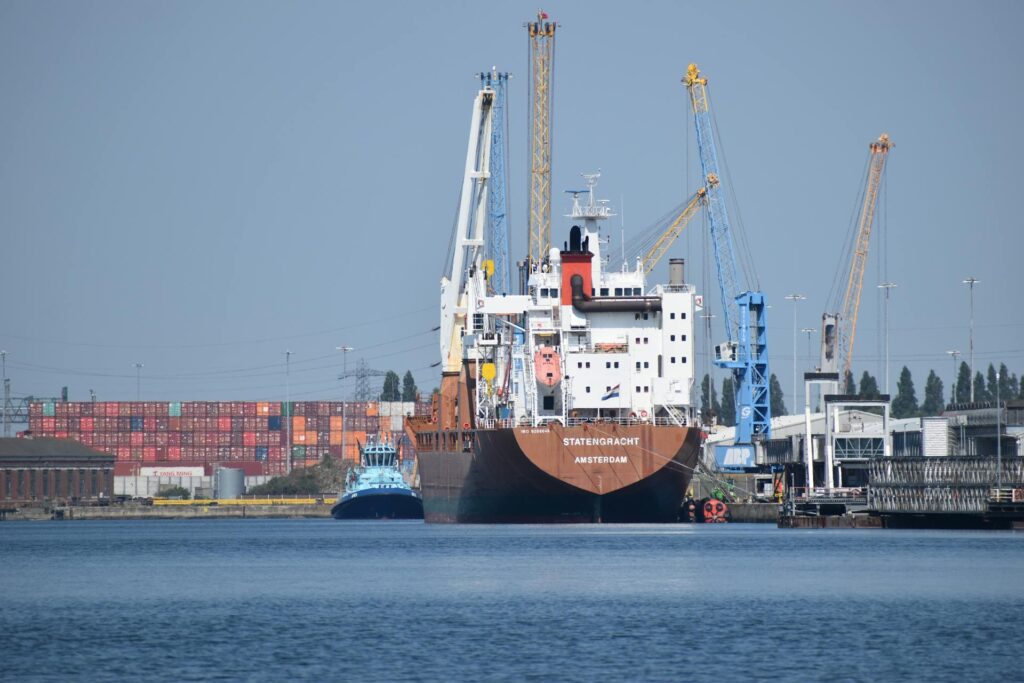
In the current wave of globalization in business, international trade is booming. Venezuela, as an important economic entity in South America, has attracted the attention of numerous enterprises. For businesses involved in the Venezuelan market, how to transport goods efficiently, conveniently, and at a low cost is a crucial factor in achieving success. The Venezuela bulk cargo sea freight DDP (Delivered Duty Paid) transportation service provided by international freight forwarding companies is like a master key, unlocking many cross-border logistics problems and paving a smooth trade path for various businesses.
I. A Panoramic Insight into the Target Customers of Venezuela Bulk Cargo Sea Freight DDP
E-commerce Practitioners
With the gradual increase in the Internet penetration rate in Venezuela, the e-commerce market is booming. Local consumers have a strong demand for various goods from around the world, covering many fields such as fashion clothing, consumer electronics, and household items. Small and medium-sized e-commerce sellers face scattered but frequent order demands, and the Venezuela bulk cargo sea freight DDP service is a perfect fit. In the past, when handling small-batch goods transportation, the high freight costs and complex customs clearance procedures often discouraged them. Under the DDP model, the low threshold of starting from 1 cubic meter allows even sellers with only a small inventory to ship goods easily.
Moreover, the service advantage of double customs clearance and tax-inclusive means that e-commerce sellers do not need to hire professional customs brokers in Venezuela, avoiding delays and penalty risks caused by unfamiliarity with local tax systems and regulations. They can simply focus on store operation and customer expansion, achieving rapid overseas expansion under a light-asset operation model.
Engineering and Manufacturing Enterprises
Venezuela has continuous investment in infrastructure construction, energy development, and other fields, attracting a large number of international engineering contractors and manufacturing enterprises to participate in projects. These enterprises often need to transport large mechanical equipment, components, and industrial raw materials and other goods. The Venezuela bulk cargo sea freight DDP provides a one-stop solution, not only ensuring that overweight and oversized mechanical components can be safely and punctually transported to the construction site, but also coordinating with the customs through a professional logistics team to quickly handle the import customs clearance procedures for the equipment, avoiding project delays caused by the equipment being detained at the port.
For industrial products with complex technical parameters and requiring special installation instructions, the freight forwarding company can also assist in providing document translation and technical communication services, helping enterprises successfully deliver project results across national borders.
Trade Wholesalers
Trade wholesalers active in various commodity wholesale markets in Venezuela rely on frequent import and export of goods to maintain business operations. The goods they deal with are diverse, including both ordinary daily necessities and seasonal and trendy sensitive goods. The universality advantage of the Venezuela bulk cargo sea freight DDP transportation service is fully demonstrated. Whether it is conventional textiles, plastic products, or high-risk sensitive goods such as battery-containing electronic products and counterfeit brand products, they can all be delivered within a unified transportation framework.
Wholesalers can use this to flexibly adjust their procurement plans, accurately control the quantity of goods shipped according to the peak and off-peak seasons of the Venezuelan market, start from 1 cubic meter and gradually expand the volume of goods, reduce the cost of a single transportation, and at the same time stabilize the cooperative relationship between the upstream and downstream of the supply chain.
II. A Fine Discrimination between Venezuela Bulk Cargo Sea Freight DDP and Other Transportation Services
Comparison with CIF (Cost, Insurance and Freight)
Liability Definition
Under the CIF clause, the seller is responsible for loading the goods on board at the port of shipment and paying the freight and insurance premium to the port of destination. However, many subsequent links such as customs clearance, tax payment, and inland transportation after the goods are unloaded at the port of destination are the responsibility of the buyer. In contrast, the Venezuela bulk cargo sea freight DDP service extends the liability chain significantly. The freight forwarder assumes the full transportation responsibility until the goods are completely delivered to the buyer’s designated warehouse within Venezuela, covering port of destination customs clearance, customs duties, value-added tax, and various possible inspection and quarantine fees.
This allows the seller to completely get rid of the “last mile” logistics worries at the port of destination, and the buyer does not need to deal with complex customs clearance procedures in a foreign country. The division of labor between the two parties to the transaction is simple and clear.
Risk Transfer
The risk of goods in a CIF contract usually transfers at the ship’s rail at the port of shipment. After that, if the goods encounter losses, delays, or other problems during transportation, as long as the seller submits the documents as agreed, the risk is transferred to the buyer. However, the situation in Venezuela is changeable, and there are frequent fluctuations in port operation efficiency and customs policies. Under the DDP model, as the full-service provider, the freight forwarder uses professional experience and local resources to monitor the goods’ status throughout the process and proactively deal with risks.
For example, it arranges transshipment in a timely manner when there is port congestion and quickly supplements the documents when the goods are subject to customs inspection, ensuring the goods are delivered on time and without damage to the greatest extent. This transfers more of the trade risks from the shoulders of the buyer and seller to its own professional control scope.
Comparison with FCA (Free Carrier)
Delivery Flexibility
FCA allows the seller to complete the delivery obligation by delivering the goods to the carrier designated by the buyer at its own location or a designated place, and it is applicable to various modes of transportation, emphasizing the flexible choice of the delivery point. Although the Venezuela bulk cargo sea freight DDP is also suitable for various transportation connections, its core advantage lies in the in-depth cultivation of the local Venezuelan market.
From optimizing the customs clearance path after the goods enter the country to planning the most convenient inland distribution route according to the delivery address, it reaches every corner such as urban streets, remote mining areas, and industrial parks, providing door-to-door seamless docking. This is the depth of end distribution that FCA, which generally only focuses on the starting end of delivery, cannot match.
Service Integration
FCA focuses on the basic transportation organization of the goods export link, and the subsequent cross-border logistics links are relatively loose, requiring the buyer to piece together resources on its own. The Venezuela bulk cargo sea freight DDP, on the other hand, is a highly integrated service. In addition to transportation, customs clearance, and tax payment, it can also provide value-added services such as goods packaging replacement, label reprinting (to meet the local language and regulatory requirements in Venezuela), goods storage, and distribution according to customer needs. It is like creating a personalized logistics package for the goods, meeting diverse trade needs in one stop and avoiding information gaps, delays, and additional costs caused by the disconnection of links.
III. In-Depth Analysis of the Key Precautions for Venezuela Bulk Cargo Sea Freight DDP Transportation
Mastering the Key Points of Venezuelan Customs Policies and Regulations
The Venezuelan customs has strict classification standards and supervision procedures for imported goods. On the one hand, for general goods, it is necessary to accurately declare the goods’ name, quantity, value, purpose, and other information to ensure consistency with documents such as commercial invoices and packing lists, preventing customs doubts caused by underreporting or misreporting and facing the risks of fines or even goods confiscation. On the other hand, for sensitive goods such as pure batteries, due to considerations of transportation safety and environmental protection, specific battery certification standards need to be met, such as the UN38.3 test report.
Also, in terms of packaging and marking, it is necessary to follow the dangerous goods transportation specifications and truthfully report parameters such as battery composition and capacity to the customs to obtain a compliance import permit.For the import of large mechanical goods, in addition to the regular customs clearance documents, it may also be necessary to submit equipment technical specification instructions and certificates of origin for the assessment of tariff rates and import qualifications. Some machinery involving industrial safety standards needs to be registered in advance with the relevant Venezuelan departments. The freight forwarding company must assist customers in pre-reviewing the integrity and compliance of the documents.
Layout of Transportation Safety and Insurance Strategies
There are regional differences in Venezuela’s domestic transportation infrastructure. From the port to inland cities, some sections of the road transportation have complex road conditions, and the goods are at risk of jolting and theft during transportation. When choosing the bulk cargo sea freight DDP service, it is necessary to ensure that the freight forwarding company is equipped with professional goods lashing and reinforcement equipment and technicians, and tailor-made transportation protection plans for special goods such as fragile items and precision instruments. At the same time, considering the exposure of risks throughout the transportation process, although DDP includes the freight forwarder’s commitment to transportation liability, it is crucial to purchase sufficient goods transportation insurance additionally.
It should not only cover basic risks such as with average and all risks to protect the physical loss of goods but also add corresponding strike risks, war risks, and other clauses for special situations such as social unrest and strikes that are common in Venezuela to comprehensively protect the value of the goods. Once an accident occurs, promptly cooperate with the insurance company to assess the loss and handle the claim to reduce the impact of the loss.
Optimization of Logistics Time Management Details
The customs clearance efficiency of Venezuelan ports is restricted by multiple factors such as local administrative efficiency, policy changes, and holidays. When planning the bulk cargo sea freight DDP transportation, the consignor needs to communicate with the freight forwarder in advance and avoid the peak shipping period around local major festivals (such as Carnival) to prevent goods from being backlog at the port. The freight forwarding company itself should establish a pre-customs clearance mechanism based on long-term accumulated local contacts and customs cooperation experience, submit electronic declaration information to the customs in advance, quickly respond to customs inspection instructions after the goods arrive at the port, and use the priority channel to accelerate release.
In the inland distribution link, track the vehicle GPS information in real-time, dynamically optimize the distribution route, and consider the unstable fuel supply in some areas of Venezuela. Plan refueling points in advance and establish cooperation with reliable local gas stations to ensure the continuous operation of transportation vehicles. Accurately control the entire process from the start of transportation to the final delivery within the expected time limit to maintain the stable rhythm of the customer’s supply chain.
Embarking on the wave of trade in Venezuela, choosing the suitable bulk cargo sea freight DDP transportation service is a wise move. It meets the needs of diverse business entities and stands out in the comparison with traditional transportation models. Although there are challenges, as long as the key precautions are accurately grasped and a professional freight forwarder is partnered with, it is possible to ride the wind and waves, smoothly navigate the Venezuelan market, make the trade ship sail steadily, and open up a new international business territory.





